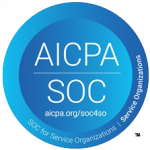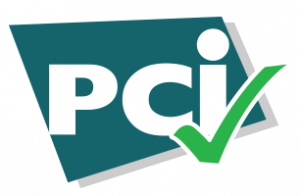
In Part 1 of this series, we explored the foundational elements of revenue cycle management—specifically, the impact of data integrity and workflow inefficiencies on overall financial performance. Now, in Part 2, we’re diving deeper into some of the most persistent challenges providers face: denials management, staffing constraints, and staying compliant with ever-changing regulations.
Each of these issues plays a critical role in maintaining a clean claims process and safeguarding your organization’s revenue. Let’s take a closer look at how healthcare organizations can proactively address these concerns and optimize the final phases of their revenue cycle strategy.
Denials Management
To the point above, better workflows can mean less claim denials. But denials management as a whole is yet another significant concern among healthcare providers, with 76% of providers identifying it as their most time-consuming task.
In fact, according to a recent report by Healthcare Finance News, providers are seeing claim rejection rates as high as 10 to 15 percent.
Addressing the root causes of denials and implementing proactive strategies can alleviate this burden.
1. Strengthen Front-End Processes
- Verify Patient Information at Registration – Ensure accurate demographic details, insurance information, and eligibility verification up front to avoid denials due to incorrect or missing data.
- Obtain Prior Authorizations – Automate and track authorization requirements for procedures and medications to prevent avoidable denials.
- Implement Real-Time Eligibility Checks – Use technology to verify insurance coverage before services are provided, reducing eligibility-related rejections. For scheduled services, consider using batch eligibility checks to proactively verify insurance for multiple patients at once. This ensures fewer surprises on the day of service, streamlines front-end workflows, and improves the patient experience while reducing eligibility-related rejections down the line.
2. Improve Coding and Documentation Accuracy
- Train Staff on Proper Coding Practices – Ensure coding teams are up to date on ICD-10, CPT, and HCPCS guidelines to prevent coding errors that lead to denials.
- Leverage Computer-Assisted Coding (CAC) Tools – Automate coding processes to minimize human errors and flag potential issues before submission.
- Ensure Detailed Clinical Documentation – Encourage physicians and staff to provide thorough, accurate documentation that supports medical necessity and coding accuracy.
3. Optimize Claim Scrubbing and Submission
- Implement Automated Claim Scrubbing Tools – Use AI-driven solutions to detect errors before claim submission, improving first-pass acceptance rates.
- Submit Claims Promptly – Delays in claim submission increase the risk of missing payer deadlines, leading to preventable denials.
- Standardize Charge Capture Processes – Ensure that all billable services are documented and submitted correctly to avoid underbilling or missing charges.
4. Develop a Robust Denials Tracking System
- Categorize and Analyze Denials – Track common denial reasons (e.g., eligibility issues, missing documentation, incorrect coding) to identify patterns and implement corrective actions.
- Use Predictive Analytics – Leverage data analytics to forecast potential denials and take preventive measures before claims are submitted.
5. Strengthen Appeals and Follow-Up Processes
- Prioritize High-Value Denials – Focus on appealing denied claims with the highest financial impact first.
- Standardize Appeals Workflows – Develop a structured process for resubmitting claims, including pre-written appeal templates based on payer-specific guidelines.
- Monitor Timely Filing Deadlines – Establish automated alerts to ensure appeals are submitted within the payer’s required timeframe.
6. Ensure Continuous Staff Training and Compliance
- Conduct Regular Training on Payer Policies – Keep revenue cycle staff updated on changing regulations, payer-specific requirements, and best practices.
- Establish Cross-Departmental Collaboration – Encourage communication between coding, billing, and clinical teams to ensure alignment on documentation and billing procedures.
Without an effective denials management program, your healthcare organization risks not only losing a substantial percentage of revenue, but also overburdening staff with the time-consuming and specialized task of untangling and appealing denied claims. Partnering with Revco Solutions ensures a strategic approach to increase your denial overturn rate, reduce rework and optimize your overall revenue cycle performance.
Staffing
Most revenue cycle leaders believe staffing shortfalls negatively affect payer reimbursements and collections. Notably, 80% of organizations report turnover rates for revenue cycle management staff between 11% and 40%, with some experiencing rates as high as 60%.
Implementing comprehensive training programs, offering competitive compensation, and fostering a supportive work environment can reduce turnover. Additionally, leveraging technology to automate routine tasks can alleviate the burden on staff and improve job satisfaction.
Addressing staffing challenges is crucial to maintaining an efficient revenue cycle.
Regulatory Compliance
Navigating the complex landscape of healthcare regulations is challenging. Non-compliance can result in claim denials, legal repercussions, and financial penalties.
Staying informed about regulatory changes and implementing compliance programs is essential and you must be proactive in hosting regular staff training and audits to ensure adherence to regulations and reduce the risk of non-compliance.
Proactive compliance measures protect your organization from financial and legal risks. Revco’s dedicated compliance team can help you navigate complexities and ensure every engagement meets the highest standards of regulatory integrity.
Outsourcing to a Revenue Cycle Management Company
In some cases, choosing to outsource with a revenue cycle management company is the best option to ensure compliance. Here’s why:
1. Expertise in Evolving Healthcare Regulations
- Stay Updated on Compliance Changes – RCM companies continuously monitor updates to HIPAA, CMS, the No Surprises Act, and other federal and state regulations, ensuring that billing and coding processes align with current standards.
- Adherence to Payer-Specific Rules – Each payer has unique policies, and outsourced RCM teams specialize in navigating these complexities to reduce denials and prevent non-compliance penalties.
2. Accurate Medical Coding and Documentation
- Certified Coding Specialists – Professional coders trained in ICD-10, CPT, and HCPCS guidelines ensure accuracy, reducing audit risks and preventing claims denials due to coding errors.
- Automated Compliance Audits – Many RCM firms use high tech tools to flag missing, inconsistent, or non-compliant documentation before claims are submitted.
3. HIPAA Compliance and Data Security
- Secure Handling of Patient Data – RCM companies follow HIPAA guidelines to protect patient information through encrypted data transmission, secure cloud storage, and role-based access controls.
- Reduced Risk of Data Breaches – By implementing cybersecurity best practices, outsourced RCM partners help prevent fraud, identity theft, and regulatory fines associated with data breaches.
4. Denials Prevention and Audit Support
- Preemptive Claim Scrubbing – RCM companies use automated claim scrubbing tools to detect errors before submission, reducing claim rejections and payer audits.
- Comprehensive Audit Preparedness – Should an organization face a payer or government audit, an RCM partner ensures that billing records, documentation, and financial reports are accurate and compliant.
5. Streamlined Revenue Cycle Workflows
- Compliance-Driven Training – Outsourced RCM teams provide ongoing education for providers on compliance requirements, reducing billing errors and regulatory risks.
- Process Standardization – A well-structured RCM partner standardizes workflows to ensure timely filing, accurate documentation, and full regulatory adherence.
Revco Solutions is committed to helping healthcare providers navigate the key issues in revenue cycle management with precision and confidence. By understanding the complexities and challenges inherent in managing the revenue cycle, we empower your organization to improve financial stability and operational efficiency. Through our expert guidance, innovative technology, and specialized teams, we ensure that your revenue cycle is not just managed but optimized for long-term success in an ever-evolving healthcare landscape.






